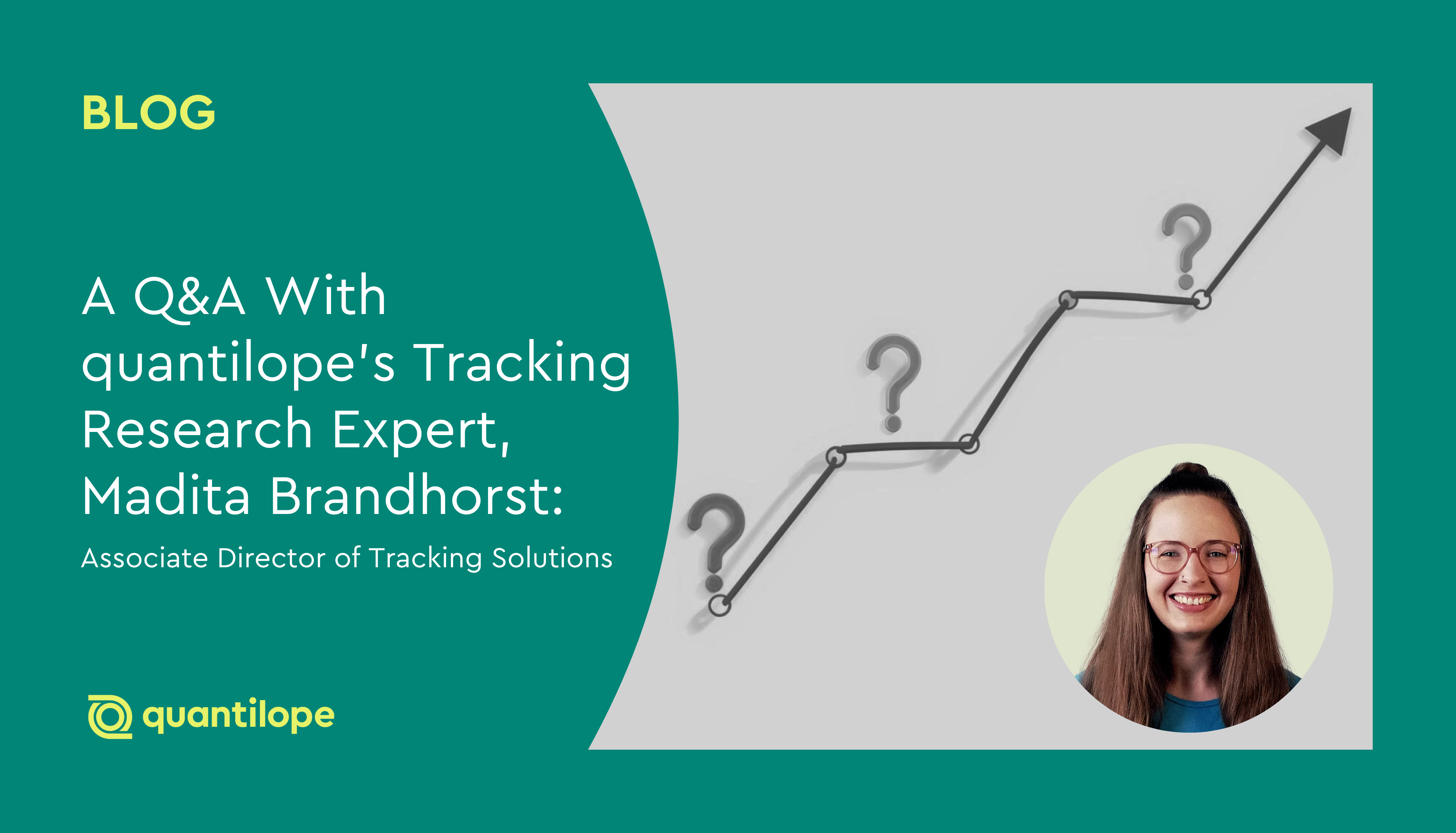Market research vs. market tracking tools
Market research and market tracking tools are both great ways to understand your market, but it's important to note they serve slightly different purposes and use different methods.
Market research is a project-based approach that focuses on answering specific business questions. It involves collecting primary data directly from customers or potential customers through surveys, interviews, and focus groups. This type of research is often used to understand customer needs, preferences, and pain points, as well as to test new product ideas or marketing campaigns. Market research can be done for one-off research needs (ad-hoc studies) or for longer-term tracking studies to monitor consumer feedback over time.
Market tracking tools, on the other hand, provide ongoing monitoring of market trends and competitor activity. These tools (such as Statista) collect data from a variety of sources, such as industry reports, news articles, and social media. This data can be used to track changes in market size, share, and trends, as well as to identify emerging threats and opportunities. Businesses can refer to market tracking data alongside their primary market research efforts for more comprehensive insights around their brand and category.
Back to Table of Contents
Features to look out for when selecting market research tools
Searching for a market research tool can be overwhelming - with so many research agencies and platforms offering different features and capabilities. To help in your search, narrow contenders down to those that offer the following features:
- Real-time data access
Without real-time access to your data, you're left relying on other teams to extract, clean, and send insights over - which could take weeks. You don't have that kind of time when it comes to making real-time decisions that keep you ahead of (or in line with) competitors. All researchers should have the ability to be hands-on with their own insights, slicing and dicing findings as often as they need, even if it's just to monitor the progression of fieldwork. - Advanced methods
Advanced methods separate surface level insights from those that go more in depth to uncover the 'why'. These are methods like MaxDiff analysis which can prioritize long-list items through tradeoff decisions, Segmentation which can automatically group your target audience into actionable sectors based on their needs, TURF analysis which allows businesses to prioritize features or products that maximize audience reach without duplicating their efforts, and Conjoint analysis which helps brands finalize individual elements of a larger initiative (such as a new product offering or service feature details). - Panel choice
Researchers should have their choice in who they reach with their insights study, rather than be limited to a particular panel provider or audience source. Look for research tools that are panel agnostic (i.e. allow you to choose from any panel source such as third-party vendors or your own list of contacts). - AI features
Artificial Intelligence continues to expand its capabilities in all industries - market research included. The use of AI in market research allows teams to do more, with less. This includes helping brands quickly generate question text or answer option inputs, generate inspiring chart titles or descriptions at a glance, and summarize entire reports or dashboards in just seconds. Compare this to more traditional ways of working - requiring teams to comb through data files, pull out relevant insights, manually chart the findings, and try to come up with the best possible headlines for stakeholders. AI not only speeds up these processes, but also provides a new perspective to come up with actionable insights for even the most complex data.
Back to Table of Contents
Best tools for market research
Related: 12 Innovative Market Research Companies & Agencies to Consider in 2026
Below are 15 research tools to consider when in need of in-depth, data-backed market insights to arm your business strategy:
1. quantilope
- Best market research tool for: real-time, automated, advanced method insights with an AI co-pilot
-
The feature we love: our largest suite of advanced research methodologies
quantilope's platform is built by researchers, for researchers. Its team of classically-trained research professionals and behavioral science experts know the frustrations of traditional research: long turnaround times, complex questionnaires, version control issues, and lack of flexibility.
quantilope's fully automated Consumer Intelligence Platform bridges that gap between frustrating research processes and actionable market research insights – for users of any skill set. Its intuitive online survey builder allows for full customization using drag & drop modules, or the option to start with customizable survey templates for even questionnaire creation. Whichever route you take (building from scratch or starting with a template) you’ll easily capture valuable insights from your target market through the use of built-in platform guardrails, automated advanced methods, and several AI features and tools from the platform's integrated AI co-pilot, quinn. 
quantilope‘s suite of 15 automated research methodologies is designed to address a variety of advanced research needs. Whether you want to fine-tune your product development using Conjoint Analysis, use a MaxDiff analysis to determine which factors potential customers consider most important in products or communication, conduct a brand tracking study over a duration of time, monitor and track general market trends, or research any other area of your customer experience, quantilope has a solution.
Alongside its quantitative methodologies, quantilope also offers a qualitative video research solution: inColor. Respondents are served question prompts through the form of video, and respond back through video as well, creating a deep sense of authenticity through consumers‘ own words and mannerisms. quantilope's inColor solution provides the perfect format for shareable, engaging consumer insight videos – with the ability to compile individual clips into comprehensive showreels to share with stakeholders. Additionally, facial emotion, sentiment analysis, and keyword trend analysis create an even deeper understanding of consumer insights.
Whether using quantilope’s quantitative or qualitative survey options, all responses are available in real-time. This means you can get started right away on creating your showreel video clips or building your quantitative dashboard. Any new data that become available after you start working on these deliverables will updating automatically as it comes in (i.e. as more respondents complete your survey or submit their video feedback).
Brands that leverage quantilope's platform are able to make real-time changes based on advanced consumer insights so they can feel more confident in their business decisions.
2. Zoho Zurvey
- Best market research tool for: General, integrated surveys
-
The feature we love: Seamless integration with the Zoho ecosystem
Zoho Survey provides an online platform for brands to create, field, and analyze a wide variety of professional surveys and forms. Its reporting and data visualization services offer real-time insights, with customizable dashboards and charts to help users easily analyze their data. Unlike standalone survey tools, Zoho Survey offers integrations with other business applications like Zoho CRM and Zoho Campaigns. This allows businesses to connect survey responses directly to customer records and automate workflows. Zoho Surveys are customizable, offering a wide variety of question types and templates.
3. Typeform
- Best market research tool for: general-purpose, online form building
-
The feature we love: conversational and engaging style of questioning
4. Google Forms
- Best market research tool for: basic survey needs
-
The feature we love: simple, free survey creation for quick insight needs
Google Forms is a tool you can use to gather information directly from consumers. To put this into very basic context, say you have a flower business and you'd like to know what types of flowers people like best. Creating a Google Form with a simple question like "What's your favorite flower?" and sending it out to your customers can give you a wealth of information, including:
- The frequency of specific flower choices (e.g., how many people selected "roses" vs. "lilies")
- How preferences change based on different factors, such as the time of year or a special occasion (e.g., you could ask if their favorite flower changes for Valentine's Day)
- Comparisons between different demographics of respondents (if you ask about age, location, etc.)
- The context behind their choices (e.g., you can ask for a short answer explaining why they chose a particular flower).
Google Forms uses charts and graphs to illustrate the responses over time and gives you a clear count of each answer. Google Forms is free, quick, and highly visual, providing accessible insights into what your audience thinks and wants.
5. Brandwatch
- Best market research tool for: digging deep into social media data and analytics
-
The feature we love: robust sentiment analysis capabilities that provide insights into the overall tone of conversations about a brand
Brandwatch is another social listening tool that's useful for understanding public sentiment and brand perception. Like Social Mention, it allows you to monitor mentions of your brand, track conversations related to your industry, and identify emerging trends on social media. This particular tool offers breadth and depth into social media analysis, with sophisticated sentiment analysis, historical data context, image recognition, influencer identification, crisis management tools, and reporting capabilities. Social listening tools like Brandwatch are particularly useful for large brands who need to monitor vast amounts of social conversation.
6. Brand24
- Best market research tool for: comprehensive brand monitoring
- The feature we love: influencer identification
Brand24 provides in-depth analysis into how a brand is perceived online. It monitors millions of sources, including social media platforms, news sites, blogs, and forums to track mentions of a certain keyword or brand. Brand24 includes detailed sentiment analysis, categorizing mentions as positive, negative, or neutral. It tracks the volume of mentions, the social media reach, and the influential users talking about your brand (or competitors) in real-time – such as key industry voices that could become future brand ambassadors. Brand24 is a great platform to use for an overall picture of a brand's online presence, showing where and how it's being talked about and the overall sentiment surrounding it.
7. Sprinklr
- Best market research tool for: managing social media presence and acting on results
-
The feature we love: The integrated platform approach that combines social listening, publishing, and analytics in one place
Sprinklr is a comprehensive social media management platform that includes social listening capabilities. It allows you to monitor brand mentions, track social conversations, and analyze sentiment across various social media channels. Using Sprinklr, brands can do more than just 'social listen'; they can actually manage their social presence through integrations with customer experience, engagement analytics, and social advertising. This allows brands to go from simply monitoring online conversations to actually responding to them, creating new content around them, and running new campaigns focused around what consumers are saying – all in one platform. It's a particularly great tool for large, enterprise organizations with complex social media operations (not just social networks but blogs, forums, review sites, and so on).
8. Google Trends
- Best market research tool for: analyzing the popularity of search queries over time and by location
- The feature we love: the ability to compare the relative popularity of multiple search terms
9. Semrush
- Best market research tool for: technical SEO analysis and competitive keyword research
- The feature we love: the site's audit tool that identifies technical SEO issues and provides actionable recommendations
Research teams use Semrush for valuable SEO insights and competitive analysis. It provides a variety of data around keyword rankings, backlink profiles, and competitor strategies. Teams can set up their own list of keywords to track over time, get automated reports about those keywords' performances, and look up new keyword potential at any time on the platform.
While mostly known for their SEO tools to improve organic search visibility and performance, Semrush does also offer tools for pay-per-click (PPC) models, social media marketing, and content marketing.
10. Ahrefs
- Best market research tool for: Backlink analysis and competitor research
-
The feature we love: The detailed backlink data and the ability to analyze competitor link profiles to identify link building opportunities
Ahrefs is another tool in the SEO and competitive analysis space. Similar to Semrush, it offers a robust set of features for keyword research, though it's a bit more focused on the back-linking and rank tracking side of SEO. Ahrefs helps brands uncover valuable insights into their competitors' strategies, identify link building opportunities, and monitor their website's performance. While its strength lies in the technical and competitive aspects of search, Ahrefs does offer other tools as well – such as their Content Explorer which is used to discover and analyze top-performing content within a certain niche.
11. Tableau
- Best market research tool for: connecting and visualizing existing data sets
-
The feature we love: Data Cloud, allowing users to integrate data from any source
Tableau’s premise is that there’s a lot of data out there and it could be presented a lot better. It is a paid-for business intelligence service that focuses on using analytics for clear, accessible data visualization that better informs business decisions.
Tableau takes data from a number of formats, including PDFs, Excel, Text, Python, R, Hadoop, and SAS, and other market research tools like Salesforce. Its interactive dashboard displays the data using graphs, tables, charts, and heat maps. Data can be shared across teams, making for easy collaboration.
12. Statista
- Best market research tool for: making the most of existing data sources
-
The feature we love: creative data presentation, including industry forecasts and ready-made reports
Statista is a paid service that specializes in secondary research (i.e. data that already exists) and packaging it into a digestible format tailored to business areas and research needs. Statista obtains its data from reliable online sources and uses straightforward, customizable data visualization to present its findings. Some of its advantages include:
- A huge array of metrics to choose from
- Data from over 150 countries
- Outlook reports that forecast how industries will develop
- A variety of ready-made reports across business areas including digital trends, politics and society, and specific companies and brands
In addition to its data-gathering capacity, Statista also has a tailored research function, so you can launch your own online surveys based on your business's unique needs.
13. Hotjar
- Best market research tool for: understanding user behavior on websites and optimizing conversions
-
The feature we love: visual heatmaps and session recordings that provide clear insights into how users interact with a website
Understanding user behavior on your website is critical for optimizing conversions and improving user experience. Hotjar provides heatmaps, session recordings, and feedback polls that allow you to see how users interact with your site. Using this market research tool, businesses identify areas for improvement and ensure that their website is meeting the needs of visitors. Hotjar also offers a way to gather direct user feedback such as pools and surveys, so you can ask website visitors specific questions about their experience to fuel future improvements.
14. Crayon
- Best market research tool for: tracking and analyzing competitor activities
-
The feature we love: the ability to easily monitor competitor websites, social media, and other marketing channels for trends and best practices
Crayon's software empowers market researchers by providing a real-time view into their competitive landscape. It automatically collects and analyzes all available information – such as website changes, pricing shifts, new job alerts, customer reviews, press releases, marketing materials, and sales data, revealing key trends, benchmarking opportunities, and insights into competitor strategies. Their AI tool suggests 'Crayon Picks' which are notable new insights to dig into. This market research tool allows businesses to refine their own marketing efforts, anticipate competitor moves, and ultimately gain a competitive edge in their category.
15. Speak AI
- Best market research tool for: analyzing audio and video recordings
-
The feature we love: automated transcription through Natural Language Processing (NLP)
Speak AI helps market researchers by automating the analysis of qualitative data, specifically audio and video recordings. It transcribes these recordings and then uses natural language processing (NLP) to identify key themes, sentiments, and insights. This saves researchers significant time and effort compared to manually transcribing and analyzing interviews, focus groups, or customer calls. Speak AI can also identify patterns and connections within the data that might be missed through manual review, providing a more comprehensive and nuanced understanding of customer opinions and feedback. Essentially, it streamlines the process of extracting valuable insights from spoken data, making qualitative research more efficient and scalable.
Back to Table of Contents
Emerging technologies in market research
It's an exciting time to work in market research. Aside from the rapidly-expanding AI tools in the industry, there's also virtual reality and augmented reality, machine-learning tools, automation, and other immersive/interactive ways of bringing a new layer to traditional market research.
These emerging and expanding technologies help create a more detailed understanding of businesses' research objectives - whether that's to understand consumers, launch successful new products, develop impactful marketing campaigns, or predict behavior patterns for future strategies. These kinds of tools can do far more than humans can alone (or at the very least, much faster). As a result, business leaders feel confident and empowered to make informed decisions.
Back to Table of Contents
Best practices for approaching market research with the help of tools
Though there are many emerging technologies and tools that make it such an exciting time to work in insights, it's fair that some traditional researchers might worry about what this means for them. Below are some final takeaway tips for any researcher or research team thinking about switching up their research tool this year (or beyond).
-
Use automation strategically. AI and machine-learning tools should be used as a collaborative partner, not a replacement for your expertise. These technologies and tools are incredible resources to speed up and streamline a market research process, but nothing can replace human insight and intervention. Use these tools as a way to inspire your starting process that you then further customize and make your own; such as using an automated platform to instantly collect and chart findings so you can dedicate your valuable time to actually crafting unique takeaways.
-
Iterate. Research platforms and tools make it easier to get more done faster, so use that to your advantage. Once you've collected data, don't stop there. Use those insights to run either another wave of the same study for trended insights, or to inspire a new type of study that dives into a particular finding in more depth. While iteration isn't very simple (or affordable) with traditional means of research, it's a key feature and benefit of modern-day market research platforms and tools.
- Leverage advanced methodologies. Market research platforms like quantilope no longer require you to be an expert in behavioral science or statistics in order to leverage advanced and complex insights. With features like pre-programmed survey templates and drag & drop modules, research platforms are empowering users of any skillset to generate impact for their business through rich and actionable findings.
Back to Table of Contents
Conducting market research with quantilope
There are many online tools on the market, with a variety of different capabilities. For real-time, automated, advanced insights around your business or consumers, quantilope's variety of methods and solutions can help you achieve your research objectives - and fast, especially with the help of the platform's AI co-pilot, quinn.
To learn more about how quantilope‘s Consumer Intelligence Platform can help with your market research goals, big or small, get in touch below!





